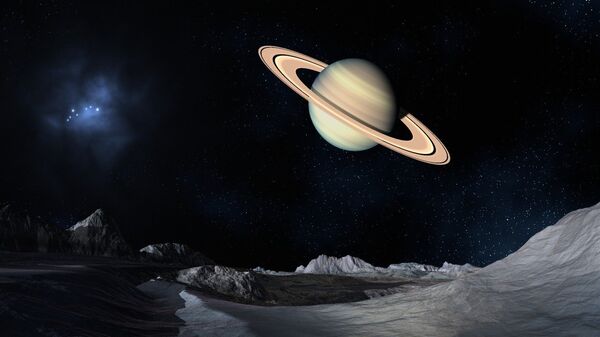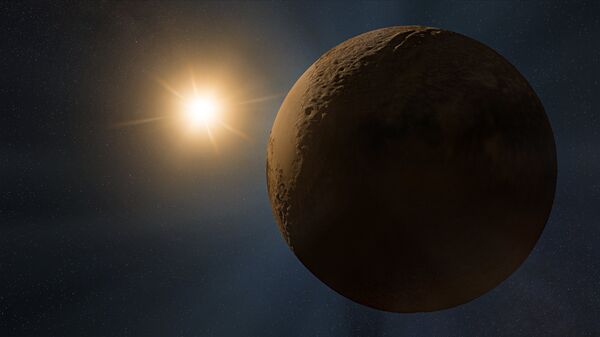A team of astronomers from the International Astronomical Union's Minor Planet Center have discovered a host of 20 new moons orbiting the planet Saturn, bringing its total to 82.
The Carnegie Institution for Science's Scott S. Sheppard led a team of scientists in a major discovery that means Saturn takes over from Jupiter, which has 79, as our solar system's “king of the moons”, the organisation’s website states.
The experts say the moons are similar in size, about five kilometers in diameter, and a majority - 17 - orbit in retrograde, against the rotation of the planet on its axis.
“Studying the orbits of these moons can reveal their origins, as well as information about the conditions surrounding Saturn at the time of its formation,” said Sheppard.
According to the study, the formation of the retrograde moons indicates they were likely once part of a larger moon that was fractured.
“This kind of grouping of outer moons is also seen around Jupiter, indicating violent collisions occurred between moons in the Saturnian system or with outside objects such as passing asteroids or comets,” said Sheppard.
The researchers believe the moons were likely created after the planet had most already been formed, given their proximity.
“The fact that these newly discovered moons were able to continue orbiting Saturn after their parent moons broke apart indicates that these collisions occurred after the planet formation process was mostly complete and the disks were no longer a factor.”
Last year, twelve new moons orbiting Jupiter were found, bringing Jupiter’s total number of known moons to 79 and making it a record-holder amongst the planets in our Solar System.
The team led by Scott S. Sheppard first spotted the moons in the spring of 2017 while they were looking for very distant Solar System objects as part of the hunt for a possible massive planet far beyond Pluto.
The team subsequently hosted a public contest designed to name the newest additions to Saturn's host of moons.
On this occasion, participants are urged to submit names linked with either Norse or Gallic mythology via Carnegie's online form.



